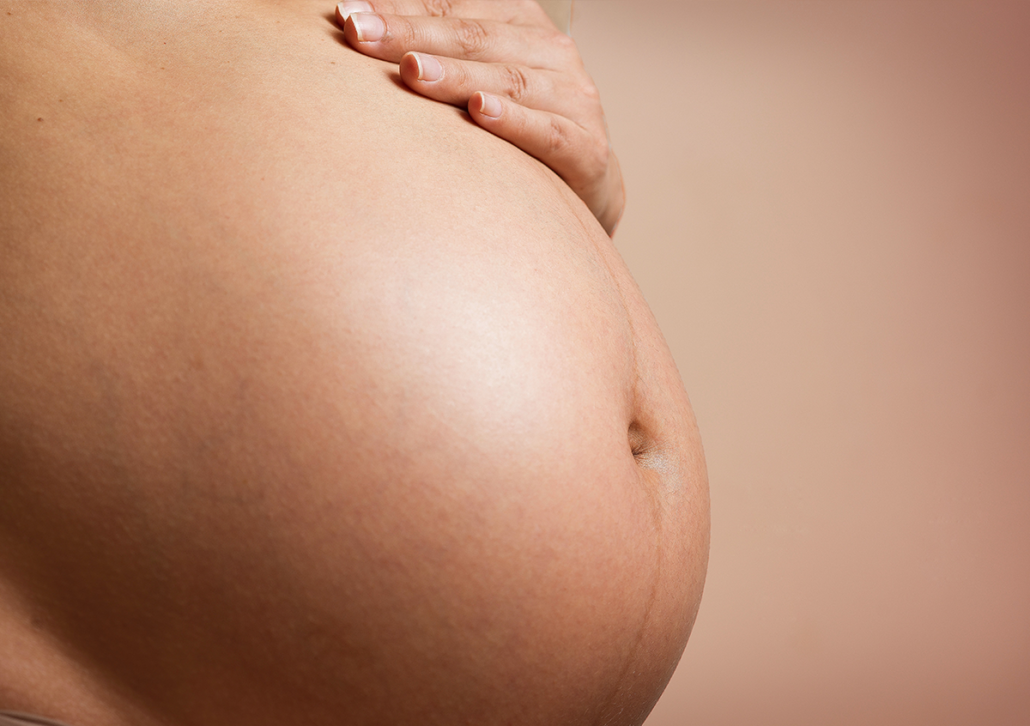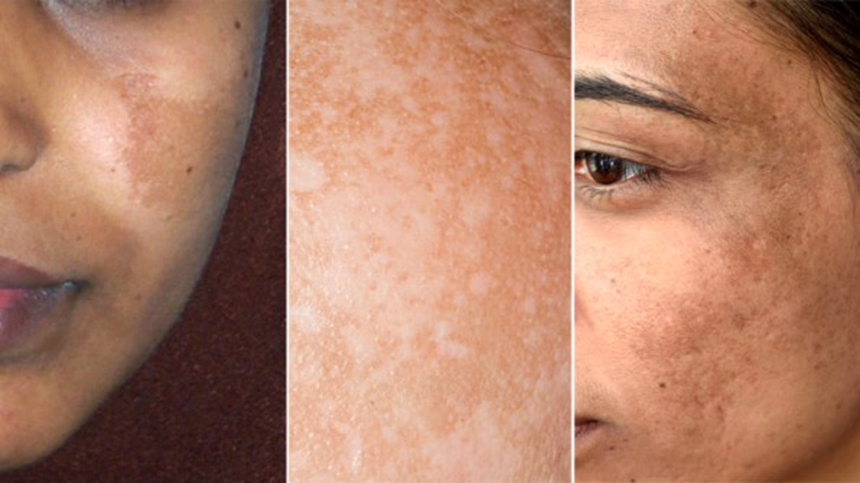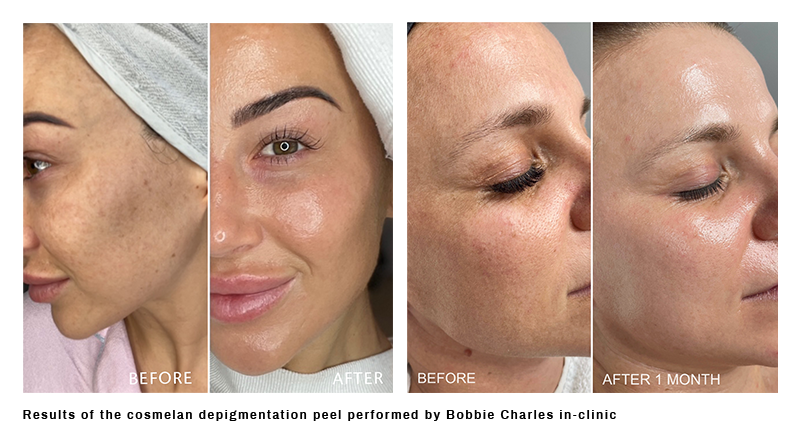
Pregnancy and Pigmentation: how to safely minimise the mask of pregnancy.
Pregnancy is a beautiful journey, that brings you so much joy, but also many aches and pains! Well, there might be another pain that caught you unexpectedly when expecting, and that’s the pain of pregnancy pigmentation.
Have patches of pigmentation slowly become visible? Do you now feel the need to wear makeup to achieve an even complexion?
Well, you’re not alone! It’s very common to develop blotchy spots of hyperpigmentation (darker patches of skin) when you’re pregnant.
This skin condition affects an estimated 50-70% of expectant mothers and is called melasma or chloasma, more commonly known as the ‘mask of pregnancy’. It appears as dark, blotchy, brown patches of skin and is most common on the cheeks and nose, but also the forehead and upper lip. You may also develop patches on your jawline and other parts of your body that are exposed to the sun. What’s more, skin that’s already more pigmented – such as your nipples, freckles, scars, and the skin of your genitals, may become even darker during pregnancy.
We know that this condition can be a huge concern for expectant mothers. Not only are there huge changes happening to your body growing your little human, but these changes to your skin can make you feel self-conscious and impact your skin confidence.
Good news is that there are safe methods to minimise it both during and post-pregnancy.
What causes melasma during pregnancy?
Melasma occurs during pregnancy by hormonal changes, triggering a temporary increase in the amount of melanin your body produces. When a steep rise in estrogen and progesterone levels occur, it stimulates excess melanin production in the skin, also known as hyperpigmentation.
Estrogen and progesterone (which are the main triggers to melasma), start building around 12-weeks, and peak at the 32-week mark. However, melasma can develop at any time during your pregnancy.
If you have a darker complexion, you have a higher chance of getting melasma than a woman with lighter skin. You’re also more likely to develop melasma if it runs in your family (did your mum get pregnancy melasma? read on). And sorry to be the fun police, but sun exposure plays a big role too!
Types of melasma and what it looks like
There are three types of melasma, categorised by how deep into the skin the pigment goes:
Epidermal: Dark brown spots with a well-defined border.
Dermal: Light brown or bluish spots with a undefined border.
Mixed melasma: A combination of bluish-grey and brown patches (the most common form).
 Pictured: the dreaded melasma mask. Source: DermNet NZ; Science Source
Pictured: the dreaded melasma mask. Source: DermNet NZ; Science Source
What can you do to treat melasma?
We can’t stress enough the importance of seeing a trained Dermal Therapist for a thorough skin diagnosis when deciding to treat pigmentation. If you’re local to Brisbane, we recommend booking a skin consultation at our West Village clinic. This ensures that our therapists can analyse your skin using the OBSERV 520 skin analysis device, to get a good understanding at what lies at a deeper level before prescribing you with the best treatment plan.
Hyperpigmentation treatment is a marathon, not a sprint as it can take several weeks or even months to see results. Treatments aim to reduce your pigment production, and if safe, remove excess pigmentation.
To minimise the severity of melasma during pregnancy, we have listed a few safe and easy tips to follow:
1. Protect yourself from the sun
As the saying goes… prevention is always better than a cure. No surprises here that our top tip is to protect yourself from the sun first and foremost. Sun exposure is known to trigger hyperpigmentation and melasma, so it’s a good idea to limit and protect your skin from the sun, as it will make your pregnancy mask more pronounced.
It goes without saying that you will need to wear a broad-spectrum sunscreen with an SPF of 30 or higher on your face all day, every day, even if you’re not going outside.
To ensure that you wear one every day, you need a sunscreen that you LOVE right? Nobody wants to walk around looking like a white greasy ghost. Our favourite broad-spectrum sunscreens don’t leave a white cast and provides you with maximum protection – with formulas that we know you’ll love. For a formula that protects, hydrates and helps repair collagen, try the iS Clinical Extreme Protect SPF 30. For a sunscreen with a light tint and a depigmenting ingredient to regulate melanin synthesis, try the much loved mesoestetic mesoprotech melan 130 pigment control SPF 50+.
Stay out of the sun when the rays are strongest — from 10 am to 2pm and be sun smart by wearing sunglasses and a wide-brimmed hat. When outside, make it a priority to reapply sunscreen once every two hours.
2. Prevent and correct pigment during pregnancy
If you’re expecting or breastfeeding, your treatment choices can be more limited, due to topical ingredients being absorbed and drawn into the bloodstream. Finding a skin care routine that is safe and effective can be a challenge but it’s doable and extremely important.
Here at Bobbie Charles, we are proud to offer pregnancy-safe treatments and products. One such brand would be iS Clinical – a range of clinically-proven professional treatments and products that are non-systematic. Meaning they do not penetrate through the skin to the bloodstream, making them safe to use whilst pregnant and nursing.
To brighten and fade skin discolouration safely, use the iS Clinical Brightening Complex. An innovative blend of proprietary brightening ingredients and botanicals, this high-performance formula concentrates on not one or two but all five mechanisms that contribute to the look of uneven skin tone. Containing a stabilised form of Vitamin C and Norwegian Kelp, it helps to diminish the appearance of both new and existing areas of uneven skin tone while working to brighten the overall complexion.
For advanced anti-ageing benefits and environmental protection, the iS Clinicial Super Serum Advance+ is an advanced Vitamin C formula, with 15% concentration of L-Ascorbic Acid (Vitamin C) with bioidentical Tripeptide-1 (Copper Tripeptide-1), this power packed serum also contains powerful botanical antioxidants and safe skin brighteners.
For a pregnancy and breastfeeding safe facial, we highly recommend the iS Clinical Fire and Ice Facial. A rejuvenating skin treatment to resurface your skin safely and rapidly, partnered with our medical grade Healite LED, it will leave your skin with an instant glow.
We’ve addressed the benefits of LED light therapy for pregnant women in the blog ‘Low-level light therapy (LLLT) and the benefits for infertility and pregnancy’, as it’s also a great safe alternative for treating hyperpigmentation, discolouration, and improving the skin tone.
3. Remove unwanted pigmentation post-pregnancy
In some cases, melasma can often fade on its own within the few months postpartum using effective skin care. If not, there are treatments that help to correct and fade melasma after your pregnancy journey.
The most effective method for removing unwanted melasma is the cosmelan peel. It’s the world’s leading professional depigmentation method for reducing the most severe and stubborn skin spots and melasma.
Excellent results are achieved in the short and long term thanks to the cosmelan peel’s unique dual action mechanism: corrective and regulatory. On one hand it corrects the visible age spots and pigmentation, but also acts on the source of the problem, regulating the overproduction of pigment to prevent its reappearance.
Cosmelan is a type of peel so it cannot be performed if you are pregnant or breastfeeding. As soon as you finish breastfeeding, it would be deemed safe to proceed with your cosmelan treatment. It’s the most popular treatment post-pregnancy, as it’s proven to efficiently correct melasma and hormonal pigmentation.

If you are curious to learn more about cosmelan, head to our website to read about this effective method to treat melasma. If you are ready to start your own cosmelan journey post-pregnancy, we have a promotion running throughout April. Book and prepay for your cosmelan treatment before 30 April 2023* and you’ll save $200 off the treatment price.
Give us a call if you’d like to discuss any of the above skin treatments or book your skin consultation and get started on your skin journey.


